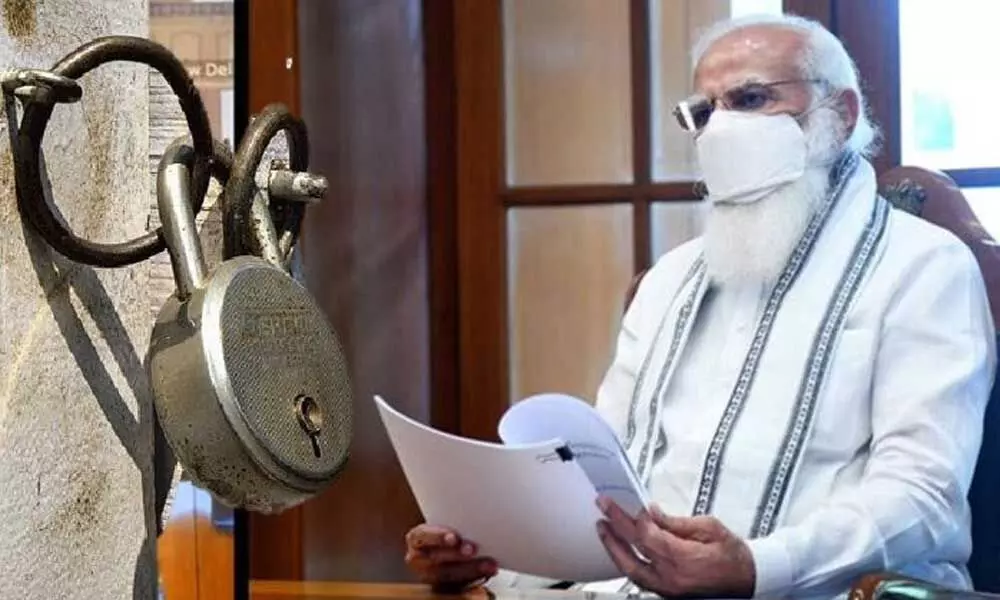PM Modi under pressure to lock down India

PM Modi under pressure to lock down India
New Delhi: Two weeks ago, Prime Minister Narendra Modi called on States to consider lockdown only 'as the last option'. Now everyone from the Supreme Court to his political allies to top business leaders and US President Joe Biden's chief medical adviser see it as the only way to stem the world's worst virus outbreak.
The debate has been complicated by Modi's move last year to impose a nationwide lockdown without warning, spurring a humanitarian crisis as migrant workers fled on foot to rural areas. While the Prime Minister is keen to avoid that criticism again, particularly after his party, BJP, failed to win West Bengal Assembly polls and even States run by his own party are ignoring his advice.
"One of the problems is this false narrative that it's either a full lockdown, which equates to economic disaster, or no lockdown, which is a public health disaster," said Catherine Blish, an infectious disease specialist and global health expert at Stanford Medicine in California. "What's happening now is a health and an economic disaster. If you have huge swaths of your population getting sick, that's not good for your population or your economy."
India's fierce second wave has overwhelmed the nation's underfunded health system, with infections topping 400,000 cases in a day and hospitals running out of beds, oxygen and medical supplies. In the past week, television channels and social media have been flooded with grim scenes of overcrowded crematoriums and desperate pleas for oxygen from hospitals. Daily deaths in India slowed marginally after hitting a record 3,689 on Sunday, while the number of daily cases has been over 350,000 for the past two weeks.
Richest banker Uday Kotak, who heads the Confederation of Indian Industry, urged the government to take the "strongest national steps including curtailing economic activity to reduce suffering." "We must heed expert advice on this subject -- from India and abroad," Kotak said.
This represents a shift from India's top business leaders. In April, a survey of the Confederation's members showed they were against lockdown and wanted swift vaccination. In the past month however, the collapsing health infrastructure and mounting fatalities revealed the extent the crisis. A lack of adequate vaccine doses has only added to the chaos.
Although policy makers have signalled they are ready to take steps to support growth, economists say a failure to flatten the virus curve could exert pressure on monetary and fiscal policies at a time when most of the conventional space available has already been used.
The most immediately effective way to break the chain of transmission is to keep people far enough apart that the virus can't jump from one to another. Some experts, including Anthony S Fauci, the top US infectious disease doctor, say a temporary shutdown is important.
But others say complete national lockdown isn't possible and would be disastrous for the poor, who have already suffered the most during the outbreak. The Union government has left it open for the States to decide on local lockdowns, and places like the national capital Delhi and the financial hub Mumbai have imposed restrictions -- though they are less strict than that in the last year.
As hospitals struggle for oxygen and bodies pile up at crematoriums, a blanket lockdown may only add to the misery. A sudden loss of livelihoods may once again prompt a rush of workers from cities to their hometowns and villages, also helping the virus spread to the hinterlands.
Instead of a strict shutdown, experts said, local governments could stop activities where it is difficult to maintain social distancing.

